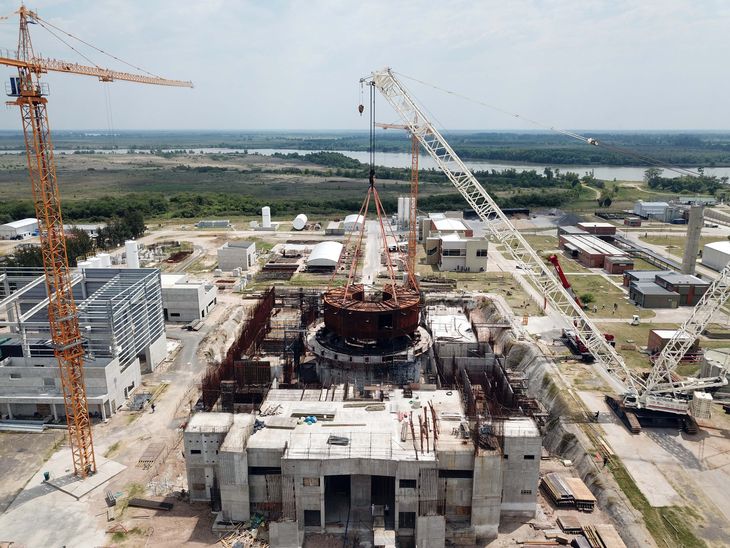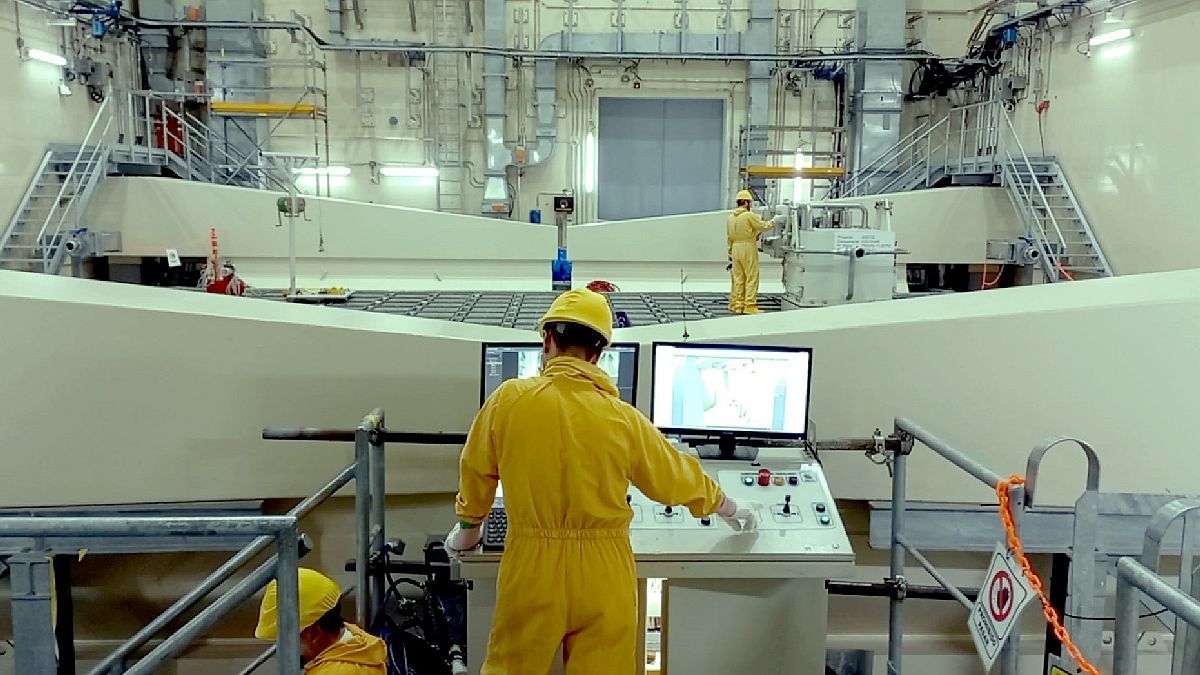The adjustment and cutback policies in public spending began on December 10, 2023 with the government of Javier Milei crossed the Argentine socioeconomic fabric, but in energy matters the nuclear sector was not exempt.
Last Wednesday, September 25, a meeting was held in the Senate of the Nation between the block of senators from Unión por la Patria and representatives of the Argentine nuclear sector. The objective of the meeting was to inform the senators of the state of “critical situation” that the sector is going through.
For the block of UxP senators they were Oscar Parrilli, José Mayans, Alicia Kirchner, Anabel Fernández Sagasti, Juliana Di Tullio, Nora Giménez, Silvia Estela Sapag, Guillermo Andrada, Lucia Corpacci, María Teresa González, Cristina López, Fernando Salino, José Emilio Neder and Gerardo Montenegro.
image.png
Representatives and workers, former officials and members of the National Atomic Energy Commission (CNEA) participated in the nuclear sector: Diego Hurtado, Nicolás Malinovsky, Andrés Kreiner, Gabriel Barcelóamong others.
The meeting was held due to the critical situation that the nuclear power after budget cuts, paralysis of key works such as the CAREM -reactor of modular elements-, plant Dioxitek in Formosa, heavy water plant in Neuquén -PIAP-, declining salaries, exodus of highly qualified workers, cancellation of projects, possible privatization of Nucleoelectrica Argentina SAamong others.
In this sense, Senator Parrilli celebrated the meeting by highlighting that “It is important that we be able to know from the Senate the status of a strategic sector such as the nuclear sector.”
image.png

For his part, the former vice president of CNEA, Diego Hurtadocarried out a contextualization of the sector and first mentioned the pressing situation of the current salaries of CNEA workers, pointing out that among 70% and 80% of the staff are below the poverty lineTherefore, without a solution to the salary problem, the nuclear sector is unviable.
“The nuclear sector is one of the most integrated sectors in technological terms that the country has; as an example, the satellite sector is a spin-off from the nuclear sector,” described, and added that “the highest point of the nuclear sector occurred in 2015 after the relaunch of the nuclear sector in 2006 by Nestor Kirchner and Cristina Fernández de Kirchner, after the fall and dismantling of the sector in “the Menemist decade.”
image.png

The Mendoza legislator Fernadez Sagasti recalled that the company IMPSA “is going through a critical situation” after the announcement of its privatization and stressed that the provincial government “You will not receive anything in exchange for the sale of your shares”. Sagasti regretted this decision considering that IMPSA is a key company for the country’s nuclear and energy development, in particular for the provision of components for the modular reactor CAREM.
el carem.jpg

In this sense, Hurtado mentioned that the CAREM reactor is “today at 63% of general progress, 84% in detailed engineering and 78% of electromechanical components ready for purchase”.
“Unfortunately,” he continued, “the project is very slow and this year it only has 50% of the budget needed to continue with the schedules.”
The expert maintained that “The situation is critical and alarming, and losing capabilities in the nuclear sector is a setback in scientific, technological and industrial terms for the country.”
The senator for Formosa and president of the UxP block, Jose Mayanshe stressed that “It is necessary to channel the nuclear sector again into national public policy and from the Senate we are available to work in this regard.”
Finally, Nicholas Malinovskya young engineer in the nuclear sector and director of OECYT, said that “The situation in the sector is critical and worrying, an exodus of highly qualified workers within the nuclear sector to the private sector is beginning, particularly from Nucleoeléctrica Argentina, “as a result of the freezing of salaries, lack of job prospects and the possible privatization of the company.”
image.png

The specialist added that under this government “A new cycle of privatization of state companies is beginning and, as we can see throughout the history of our country, the destruction of strategic sectors is usually quick and effective, recovering them can be a titanic task.”
After the exchange during the meeting, the Peronist block of senators remained open to dialogue and in a permanent working commission with the workers and representatives of the sector to closely monitor the situation and, in this way, take action to avoid “degradation and dismantling.” before the decisions of the Government.
image.png

At the end, national legislators ratified at the meeting their commitment to the legislative defense of energy sovereignty policies.
Source: Ambito
I am Pierce Boyd, a driven and ambitious professional working in the news industry. I have been writing for 24 Hours Worlds for over five years, specializing in sports section coverage. During my tenure at the publication, I have built an impressive portfolio of articles that has earned me a reputation as an experienced journalist and content creator.




